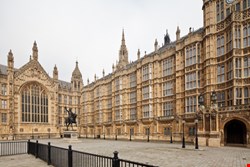
If the bill becomes law, ISPs and mobile carriers would be required to have as their default setting a web free from hardcore porn. Adults over the age of 18, however, can be given an option to opt-in for access to that type of content.
Proposal champion Baroness Howe of Idlicote, former chairwoman of the Broadcasting Standards Commission, painted the need for the bill in terms of child protection. "We have to ask ourselves the question why on earth a whole series of protections that pertain to children offline are spirited away when they move to the online world,” she said, as reported by the UK Press Association. “I believe children need and deserve the same protections online as apply offline,” adding, "it's right that responsibility for bringing up children should be with parents but they need help and it's surely society's role to help them."
Mark James, technical team leader at ESET UK, concurred in an email to Infosecurity.
“It is not only the ISPs/operators duty to ensure child safety online; that responsibility also falls to the business, parents and, in fact, all adults utilizing the service,” he said. “Additionally, AV partners should work more closely with the manufacturers of computers and smartphones – if every device had some sort of protection, even a 30-day trial, then it would encourage users to be more aware of the importance and need to protect all devices, even their smartphones.
“With better education on the pitfalls of random searches and surfing the internet and their implications, we would all be a lot closer to protecting our children online,” James opined. “In this instance, it would be a lot better for parents if they were aware of which ISPs are trying to protect their children, therefore allowing them to possibly choose the ISP that offers the best protection.”
Research from ESET into the technology and traditional milestones of a child’s life has revealed that nine years old is when the average British child first becomes technologically mature. That is, by nine, parents will allow children to surf the internet unsupervised, and that kids will have sent emails, text messages have their own email account, and even be allowed a computer in their bedroom.
James also pointed out that adult content is often accessed by accident, which then leads to further viewing. “If this issue was addressed from the start, then it would make our daily browsing a lot safer. If people want to access this content, then they will,” he said. "Having to actually change settings and make the decision to allow access may take us a step closer to being responsible for what's available to our younger generation.”
Some, of course, disagreed, saying that the bill gives ISPs too much censorship power. "If you give the responsibility to ISPs to decide what is pornographic and what is not, you are recreating the office of the Lord Chamberlain," said Lord Lucas, former Tory whip, according to the Press Association report.
"These things should be dealt with by parental choice and not by impositions through an ISP."
The debate is eerily similar to what was kicked around in the US over the 1998 Online Child Protection Act, which never went into effect thanks to a Supreme Court injunction and which was finally struck down for good in 2007. That law would have mandated filters for public internet access areas and regulated non-obscene (i.e., legal) adult content on the web. However, First-Amendment advocates and Net-neutrality proponents successfully convinced a judge that such regulation would chip away at freedom of expression protections. The judge also found that leaving online safety a matter of personal responsibility is bolstered by the theory that the implementation of private, optional filters could do a better job than a bureaucratically administered regulation scheme.
Regardless of the bill’s outcome, ESET cautions parents that, besides the obvious need to be aware of what a child is doing online as it happens, they should also monitor browsing history, talk with them about online safety and privacy, and make sure updated security software is in place.
Also, parents should control the web camera, which can be easily misused by criminals and strangers. “Turn off or unplug your webcam when you don’t use it,” the vendor offered as advice. “There is malware that can access your webcam without you knowing about it. Check that the web camera is off when it should be. Have children use camera only for approved communication: with known friends and family.”